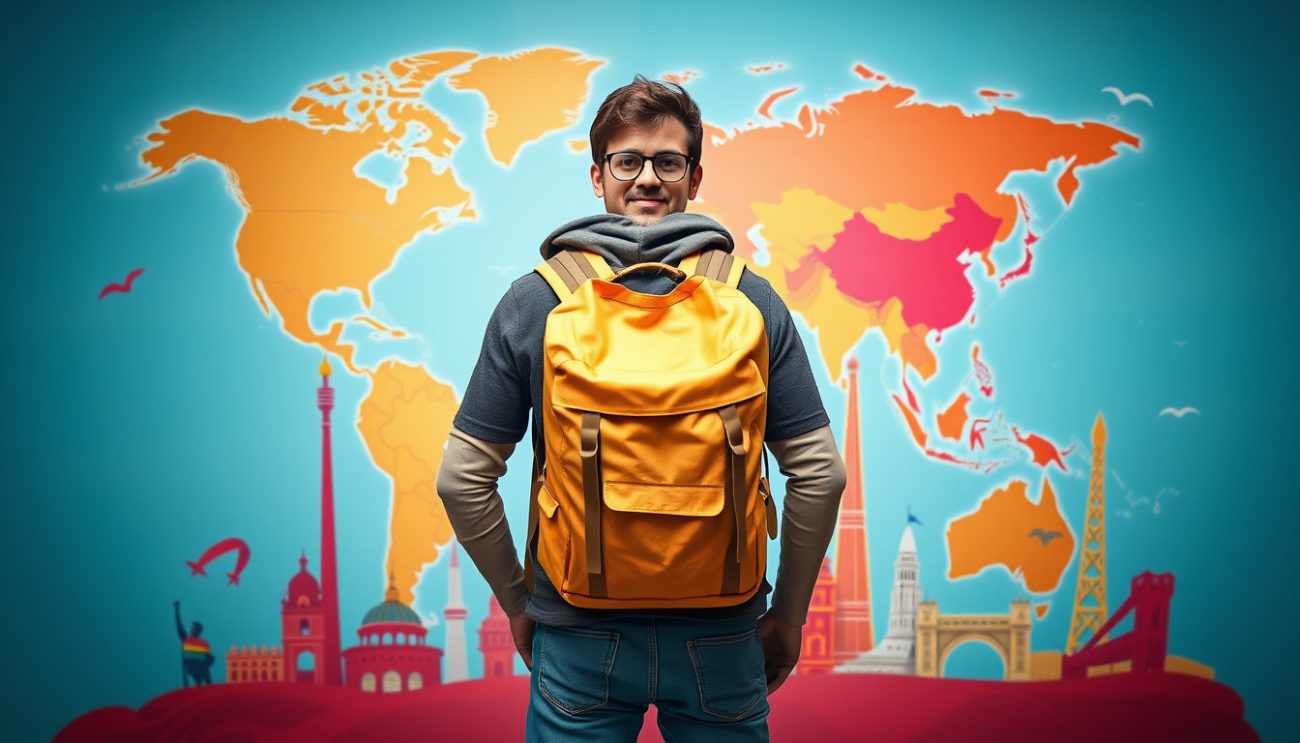Unlocking Adventure: Essential Budget Travel Tips for the Savvy Explorer
Traveling the world is an enriching experience that many dream of but hesitate to pursue due to cost concerns. However, exploring new destinations doesn’t have to break the bank. With strategic planning and smart choices,

Traveling the world is an enriching experience that many dream of but hesitate to pursue due to cost concerns. However, exploring new destinations doesn’t have to break the bank. With strategic planning and smart choices, budget travel can be both affordable and fulfilling. Here’s a comprehensive guide to essential budget travel tips, drawn from seasoned travelers and experts, to help you unlock adventure without overspending.

1. Find Cheap Flights: Your Gateway to Savings
Flights often constitute a significant portion of your travel budget, so securing inexpensive airfare is paramount.
-
Use Flight Search Engines Wisely: Platforms like Skyscanner and Google Flights are invaluable for finding budget-friendly flights. Skyscanner’s “Everywhere” destination search tool helps discover the cheapest locations to fly to from your departure city, while Google Flights offers flexible date grids and price tracking features to notify you of fare drops.
-
Leverage Flight Alert Services: Apps such as Hopper monitor flight prices and send notifications when prices dip. Similarly, email lists like Scott’s Cheap Flights alert you to mistake fares and major discounts, often from reputable airlines—perfect for snagging deals quickly.
-
Consider Budget Airlines—but Read the Fine Print: Airlines like RyanAir, EasyJet, and similar low-cost carriers can dramatically cut costs. Be aware, though, these often charge extra for checked bags, seat selection, and sometimes even carry-on luggage. Traveling with carry-on only luggage, as many budget-conscious explorers do, is a common strategy to avoid these fees.
2. Budget-Friendly Accommodation: Comfortable Yet Economical
Accommodation can be your second-largest expense, but there are multiple affordable options that don’t compromise safety or convenience.
-
Airbnb and Vacation Rentals: Renting an apartment or a room via Airbnb can often be cheaper than hotels, especially if traveling in groups. These accommodations are typically more centrally located, offering local charm and flexibility, including access to kitchens for self-catering.
-
Hostels – Not Just for Backpackers: Modern hostels are secure, clean, and sociable, making them great for solo travelers looking to meet others. Many hostels feature shared kitchens—a perfect way to save money by preparing your own meals. Websites like Booking.com and HostelWorld are excellent resources.
-
Couchsurfing and House Sitting: For the adventurous, staying with locals for free (Couchsurfing) or caring for someone’s home and pets while they’re away (house sitting) eliminates accommodation costs. These require trust and due diligence but can offer unique cultural immersion.
-
Book in Advance: Unlike last-minute flights, hotel and rental prices rarely drop closer to your travel date. Booking accommodation well ahead ensures access to the best prices and availability.
3. Choose Your Destination Wisely
The cost of living and tourism infrastructure vary dramatically worldwide. Opting for budget-friendly destinations allows your money to stretch further.
-
Pick Destinations with Weaker Currencies or Lower Cost of Living: Countries in Southeast Asia, parts of South America, Eastern Europe, and some African nations typically offer better value on accommodations, food, transport, and attractions.
-
Avoid Oversaturated Tourist Hubs: Less-touristy towns and regions may offer a more authentic experience at a fraction of the price of popular hotspots.
4. Embrace Local and Public Transportation
Using local transport not only saves money but enhances your cultural experience.
-
Public Transport: Buses, trains, subways, and shared taxis are almost always cheaper than taxis or car rentals. For example, long-distance buses in South America and trains in Europe offer economical and comfortable travel.
-
Rent a Moped or Bike: In many countries across Asia and Europe, renting a moped or bicycle is affordable and allows independent exploration without taxi fees.
-
Consider Open-Jaw Flights: Flying into one city and out of another can reduce backtracking costs and maximize your trip.
5. Book Tours and Activities Locally
Rather than pre-booking expensive tours through international agencies, wait until arrival to book with local operators.
-
Direct Booking Saves Money: Local companies often offer the same tours at a fraction of the cost, and your money supports the local economy directly.
-
Self-Guided Exploration: Many national parks and cultural sites allow visitors to explore independently, reducing the need for costly guided tours.
6. Eat Like a Local to Save Big
Dining choices significantly impact your daily budget.
-
Avoid Tourist Traps: Restaurants with multilingual menus and “We speak English” signs often charge more for lower-quality food. Instead, seek eateries favored by locals.
-
Street Food and Markets: Sampling local street food or purchasing fresh ingredients at markets for self-cooked meals is economical and delicious.
-
Picnics: When feasible, buying deli items and having a picnic can be a charming and thrifty lunch option.
-
Eat Seasonally: Ordering dishes featuring ingredients in season tends to be more affordable while providing authentic flavors.
7. Use Smart Money Management Techniques
-
Withdraw Cash Strategically: Use ATMs to get local currency, but minimize withdrawal fees by taking out larger sums less frequently.
-
Carry a Money Belt: Keep valuables secure to avoid theft, which can be both costly and ruin the trip.
-
Know Exchange Rates and Fees: Avoid currency exchange kiosks that do not display both buy/sell rates. Pay with cash in small shops where cards are not accepted for best deals.
-
Ask for Discounts: Students, seniors, and families can often benefit from discounts—always inquire politely.
8. Travel Light and Prepare Well
Packing efficiently means avoiding baggage fees and moving around more comfortably on public transport.
-
Carry-On Only: Well-organized packing with just a carry-on can save on checked bag fees and time at airports.
-
Use Guidebooks and Maps: An up-to-date travel guide pays for itself by helping you find the best sights, eateries, and bargains.
-
Plan Off-Season Trips: Traveling during shoulder or off-peak seasons often yields cheaper flights, accommodations, and fewer crowds.
9. Share Costs by Traveling with Others
Traveling with a partner or friends enables you to split accommodation, transport, and food expenses.
Group travel often unlocks discounts and enables shared experiences like cooking meals or hiring private transportation.
Final Thoughts
Budget travel is about smart planning, flexibility, and embracing local experiences. By finding cheap flights, choosing affordable accommodation, opting for budget-friendly destinations, and traveling like a local, you can see the world without draining your savings. Remember, affordable travel doesn’t mean deprivation—it means enriching your journey with meaningful, cost-effective choices that deliver both comfort and adventure.
Now, armed with these essential budget travel tips, go forth and unlock your next adventure!



